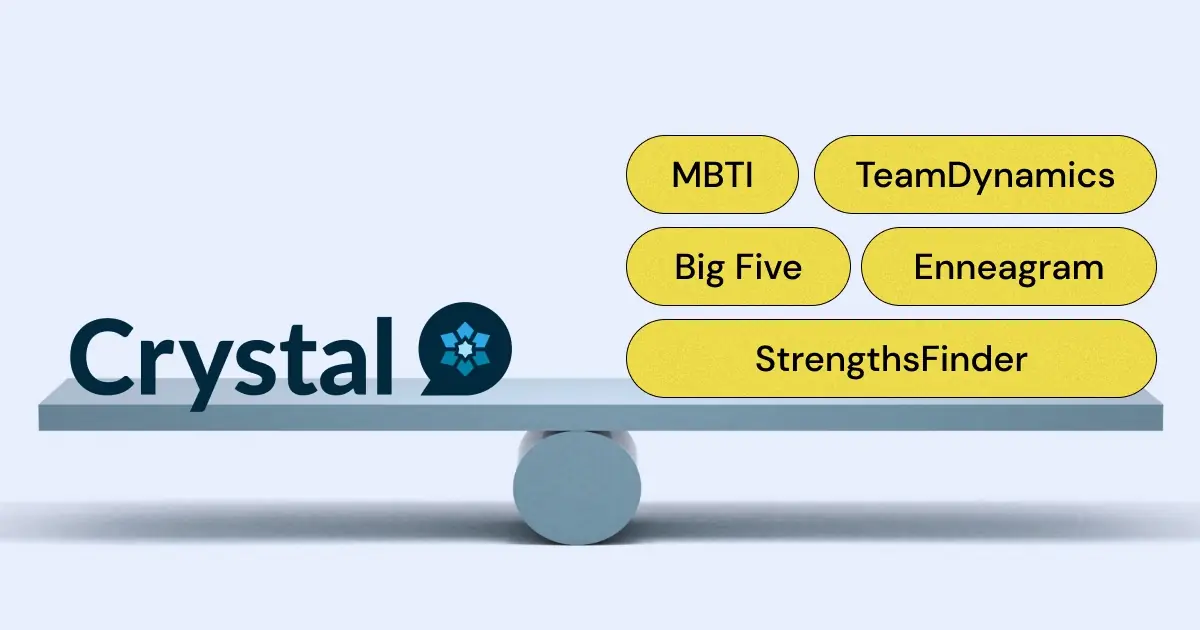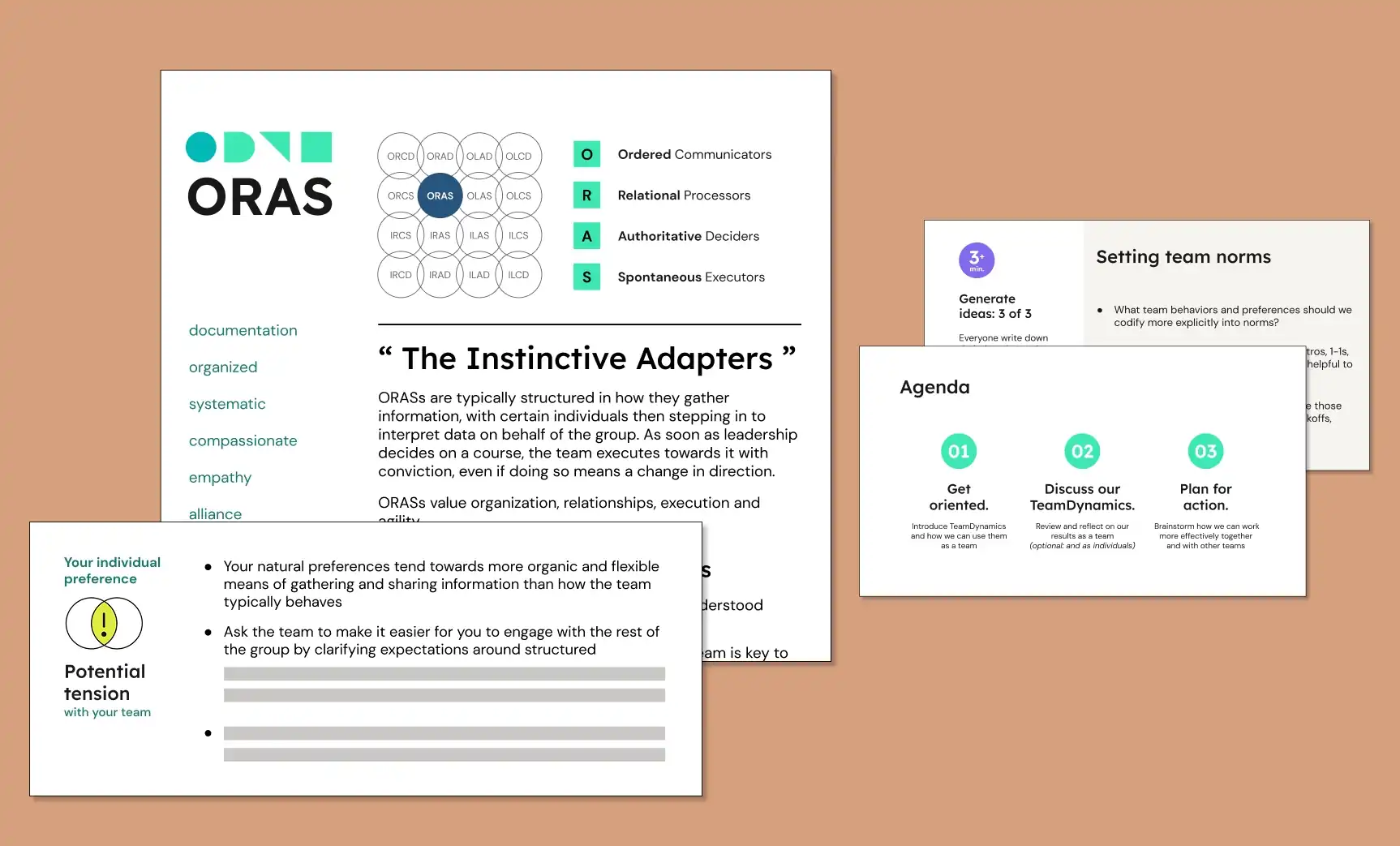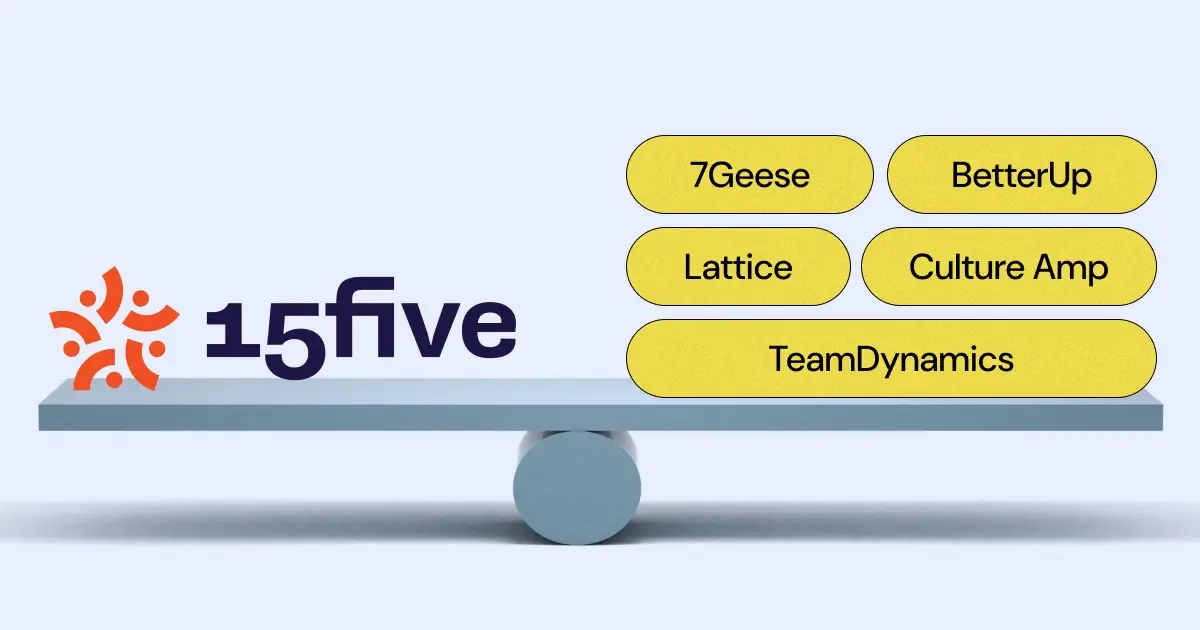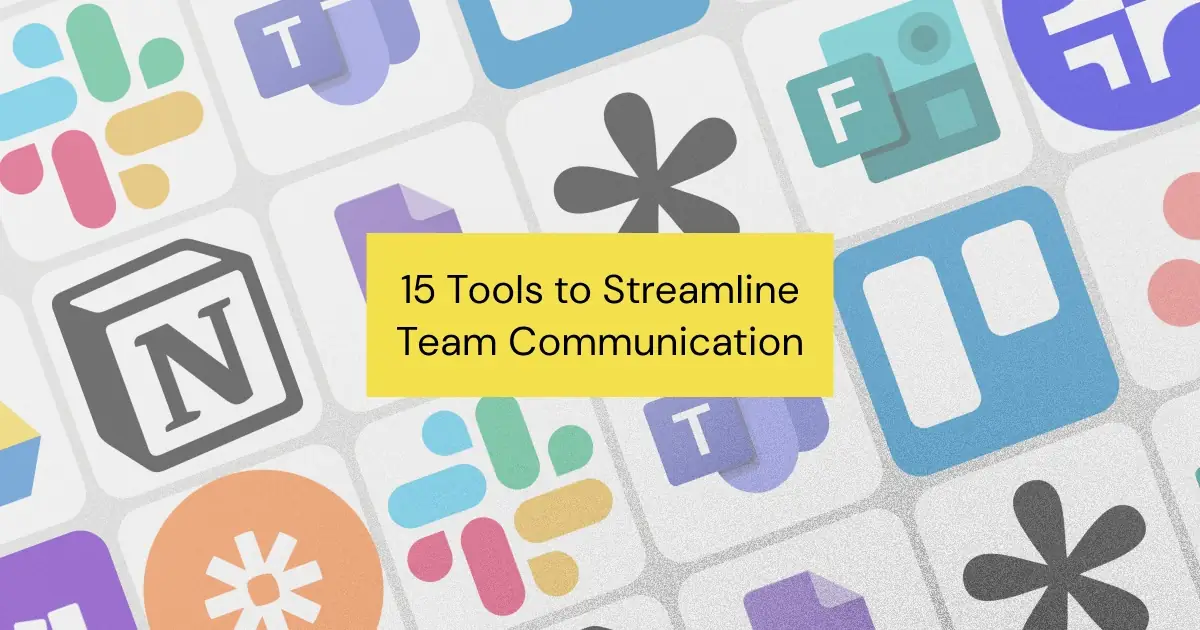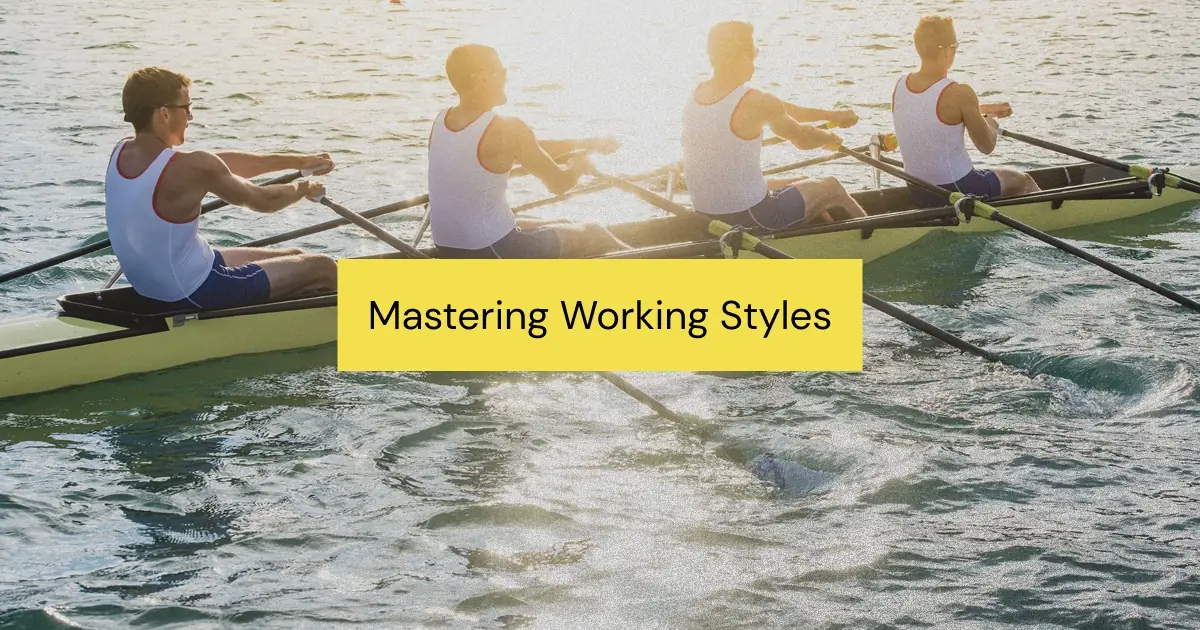Understanding personality types can be the key to unlocking better team dynamics, enhanced communication, and overall productivity. Crystal has gained popularity as a tool that provides personalized insights into how individuals think, behave, and communicate. By analyzing LinkedIn profiles, Crystal offers DISC-based personality predictions, helping users tailor their communication styles accordingly.
However, while Crystal is an innovative idea and certainly has its strengths, it might not be the perfect fit for every team or individual. Whether you’re looking for a tool with more robust team-building features, a different approach to personality analysis, or simply exploring other options, we’ve got you covered. In this post, we’ll explore the five best alternatives to Crystal that can help you better understand your team and work more effectively together.
By the end of this article, you’ll have a clearer idea of which personality assessment tool suits your needs best—whether it’s for personal development, team dynamics, or leadership growth.
What is Crystal?
Crystal is a unique personality assessment tool that has gained traction for its ability to predict how people think, behave, and communicate. What sets Crystal apart is its use of DISC profiling, a behavioral assessment tool that categorizes people into four primary personality types: Dominance, Influence, Steadiness, and Conscientiousness. By analyzing data from LinkedIn profiles and other online behavior, Crystal generates a personality report for each individual.
Crystal uses machine learning algorithms to analyze publicly available data from LinkedIn profiles, such as job titles, industry, skills, endorsements, and written content (e.g., recommendations, job descriptions, posts). It then maps this data to DISC personality traits—Dominance, Influence, Steadiness, and Conscientiousness—based on patterns observed in a large dataset of known DISC profiles.
Key Features of Crystal:
- DISC-Based Analysis: Crystal’s core strength lies in its DISC profiling, which helps users understand and adapt to different communication styles.
- LinkedIn Integration: By pulling data from LinkedIn, Crystal provides personality insights without requiring users to complete lengthy questionnaires.
- Personalized Communication Tips: Crystal offers actionable advice on how to communicate effectively with colleagues, clients, or even potential hires based on their DISC profile.
Limitations of Crystal:
While Crystal offers valuable insights, it has its limitations. For one, its reliance on LinkedIn data means that the accuracy of the personality predictions depends heavily on the completeness and accuracy of an individual’s LinkedIn profile. Additionally, Crystal’s focus on DISC profiling, while useful, may not capture the full complexity of an individual’s personality or how they might function within a team setting. This is where exploring alternatives can be beneficial, especially if you’re looking for a tool that offers a more comprehensive view of team dynamics or different approaches to personality assessment.
While Crystal is a clever tool that can offer some useful insights, it’s important to understand its limitations. It might provide a rough approximation of someone’s DISC profile based on LinkedIn data, but it’s unlikely to be as accurate or comprehensive as a traditional DISC assessment where individuals directly report their preferences and behaviors.
Why Choose an Alternative to Crystal?
While Crystal offers valuable insights into communication styles and behavior through its DISC-based analysis, it may not be the perfect fit for every team or individual. Here are a few reasons why you might want to consider exploring alternatives:
1. Limited Data Sources:
Crystal’s reliance on LinkedIn data can be both a strength and a limitation. While it’s convenient for quickly gathering information, the accuracy of its personality predictions depends on the completeness and accuracy of a user’s LinkedIn profile. If a profile is sparse or outdated, the insights Crystal provides might not be as reliable. In contrast, other tools like MBTI or the Big Five don’t depend on external data sources and can provide more consistent results.
2. Narrow Focus on Communication Styles:
Crystal excels at helping people adapt their communication styles to different personalities. However, it primarily focuses on surface-level behaviors and doesn’t delve as deeply into underlying personality traits or motivations. Tools like the Enneagram or StrengthsFinder offer a broader view, exploring what drives an individual and how they can leverage their strengths or overcome challenges. This can be particularly beneficial for personal development and building more cohesive teams.
3. Need for More Comprehensive Team Insights:
If you’re looking to improve team dynamics, Crystal’s individual-focused approach might fall short. Tools like TeamDynamics are designed specifically to understand how a team functions as a whole, offering insights into communication patterns, decision-making processes, and potential friction points. These tools can help you create a more productive and harmonious team environment, going beyond what Crystal can offer.
4. Desire for Scientifically Backed Assessments:
While Crystal’s DISC-based profiling is widely used, some organizations prefer tools with a stronger scientific foundation. The Big Five Personality Traits, for example, is one of the most scientifically validated models in psychology. If evidence-based practices are important to your organization, you might find the Big Five or MBTI to be more aligned with your needs.
The 5 Best Alternatives to Crystal
Ultimately, the best personality assessment tool for you depends on your specific needs. If your goal is to adapt communication styles in a professional setting, Crystal might still be the right choice. However, if you’re seeking deeper insights into personality, strengths, or team dynamics, one of these alternatives to Crystal could be a better fit.
Alternative #1: MBTI (Myers-Briggs Type Indicator)
Use MBTI when you need a more comprehensive understanding of your team’s cognitive styles and decision-making processes.
The Myers-Briggs Type Indicator (MBTI) is one of the most well-known personality assessments worldwide. It categorizes individuals into 16 personality types based on preferences in four areas: Introversion vs. Extraversion, Sensing vs. Intuition, Thinking vs. Feeling, and Judging vs. Perceiving. MBTI is widely used in various industries for personal development, team building, and leadership training.
What Makes MBTI Special:
MBTI goes beyond surface behaviors and dives into the cognitive functions that drive how people perceive the world and make decisions. This deeper understanding of personality can offer more nuanced insights into how team members might approach problems and interact with each other.
Why MBTI Might Be a Better Choice than Crystal:
While Crystal focuses on adapting communication styles based on DISC profiles, MBTI provides a broader view of personality by exploring underlying thought processes and motivations. This makes MBTI particularly useful for teams that want to understand not just how their members behave but why they behave that way. Additionally, MBTI’s widespread use means there are abundant resources and support for implementing it in team settings.
Alternative #2: TeamDynamics
Use TeamDynamics when your primary goal is to improve team collaboration and productivity by understanding both individual and collective behaviors.
TeamDynamics is a cutting-edge assessment tool designed specifically for understanding and improving team behaviors. It measures how teams communicate, turn information into insights, make decisions, and execute plans. TeamDynamics also provides insights into how each team member’s preferences align with the team’s overall behavior, helping managers anticipate and address points of friction.
What Makes TeamDynamics Special:
Unlike other assessments that focus on individual personality traits, TeamDynamics is built around team dynamics. It analyzes both individual preferences and how these preferences interact within a team, making it an excellent tool for optimizing team performance and cohesion.
Why TeamDynamics Might Be a Better Choice than Crystal:
While Crystal is great for understanding individual communication styles, it doesn’t offer the same depth of insight into team dynamics. TeamDynamics not only identifies potential conflicts but also provides actionable steps to improve collaboration, making it a more effective tool for managers looking to enhance team performance.
Alternative #3: StrengthsFinder (CliftonStrengths)
Use StrengthsFinder when you want to build a culture focused on leveraging individual strengths for better team performance.
StrengthsFinder, now known as CliftonStrengths, is an assessment tool focused on identifying an individual’s top strengths out of 34 possible talent themes. Rather than categorizing people into fixed types, it highlights what individuals naturally do best, allowing them to leverage their strengths for personal and professional growth.
What Makes StrengthsFinder Special:
StrengthsFinder’s emphasis on strengths rather than weaknesses or personality types is a refreshing approach. It encourages people to focus on developing their natural talents, which can lead to higher engagement, productivity, and job satisfaction. It’s particularly useful in environments that prioritize personal development and positive psychology.
Why StrengthsFinder Might Be a Better Choice than Crystal:
While Crystal is useful for adapting communication styles, StrengthsFinder helps individuals and teams focus on what they do best. This makes it a powerful tool for organizations that want to build a strengths-based culture, where employees are encouraged to harness their natural talents rather than conform to specific behavioral expectations.
Alternative #4: Big Five Personality Traits
Use the Big Five when you need a scientifically validated tool to understand and predict a wide range of personality-driven behaviors.
The Big Five Personality Traits, also known as the Five-Factor Model, is a scientifically validated framework that assesses five key dimensions of personality: Openness, Conscientiousness, Extraversion, Agreeableness, and Neuroticism. Unlike many other personality assessments, the Big Five is rooted in extensive psychological research and is widely accepted in the academic community.
What Makes Big Five Special:
The Big Five offers a highly reliable and scientifically grounded way to understand personality. It’s often used in research settings and is valued for its ability to predict a wide range of behaviors and outcomes, from job performance to interpersonal relationships. The model’s focus on five broad traits provides a comprehensive view of personality without overcomplicating the assessment.
Why Big Five Might Be a Better Choice than Crystal:
While Crystal is more user-friendly and provides quick insights based on DISC profiles, the Big Five offers a deeper, research-backed understanding of personality. This makes it a better choice for organizations that value evidence-based approaches and need a robust tool for predicting behavior across different contexts.
Alternative #5: Enneagram
Use the Enneagram when you want to explore the deeper motivations behind team members’ behaviors to foster greater self-awareness and empathy.
The Enneagram is a personality system that identifies nine distinct types, each with its own set of motivations, fears, and behaviors. It offers a unique approach to understanding personality by focusing on the core drivers behind our actions, making it a powerful tool for personal growth and self-awareness.
What Makes Enneagram Special:
The Enneagram’s focus on motivations and fears rather than just behavior sets it apart from other personality assessments. It provides deep insights into why people act the way they do, which can be particularly useful for improving self-awareness, empathy, and communication within teams.
Why Enneagram Might Be a Better Choice than Crystal:
While Crystal offers insights into how to adapt communication based on DISC profiles, the Enneagram digs deeper into the underlying motivations that drive behavior. This can lead to more meaningful personal development and stronger interpersonal relationships, making it a great choice for teams that value emotional intelligence and self-awareness.
Comparing the Top 5 Alternatives to Crystal
So which of these leading alternatives to Crystal is the best personality test for you and your organization? Take a look at this comparison table to find out!
| Tool |
Primary Focus |
Best For |
Key Features |
| MBTI (Myers-Briggs Type Indicator) |
Cognitive Styles and Decision-Making |
Understanding team members' cognitive functions and motivations |
16 personality types based on four dichotomies; valuable for team-building through deeper cognitive insights. |
| TeamDynamics |
Team Collaboration and Cohesion |
Improving teamwork and aligning individual preferences with team goals |
Evaluates both individual and team behaviors; provides actionable insights for optimizing team performance. |
| StrengthsFinder (CliftonStrengths) |
Strength-Based Development |
Creating a strengths-focused culture for higher engagement and productivity |
Highlights top strengths among 34 talent themes; ideal for building on natural talents and creating a strengths-driven workplace. |
| Big Five Personality Traits |
Research-Based Personality Traits |
Providing scientifically grounded insights for evidence-based personality analysis |
Evaluates five main traits (Openness, Conscientiousness, Extraversion, Agreeableness, Neuroticism); ideal for predicting behavior with strong scientific validation. |
| Enneagram |
Core Motivations and Personal Growth |
Fostering self-awareness and empathy within teams |
Nine personality types focused on motivations; useful for personal development, improving self-awareness, and team empathy. |
Conclusion
In the quest to understand ourselves and our teams better, choosing the right personality assessment tool is crucial. While Crystal offers a convenient and insightful way to adapt communication styles using DISC profiling, it’s not the only option out there. Whether you’re looking for a deeper dive into cognitive functions with MBTI, a comprehensive team behavior analysis with TeamDynamics, or a strengths-based approach with StrengthsFinder, there are alternatives that might better suit your needs.
Each of the tools we’ve explored—MBTI, TeamDynamics, StrengthsFinder, the Big Five, and the Enneagram—offers something unique, from scientific rigor to a focus on personal growth. If Crystal isn’t quite fitting the bill for you, one of these alternatives could be the perfect match.
Remember, the key to success with any personality assessment tool is finding one that aligns with your goals, whether it’s improving team dynamics, fostering personal development, or simply understanding each other better. As you explore these options, consider what matters most to you and your team.
If you’re looking for a tool that goes beyond just understanding individual behaviors and really gets to the heart of how your team works together, TeamDynamics might be the perfect solution. With its focus on team dynamics and actionable insights, it’s designed to help you build stronger, more cohesive teams. Give TeamDynamics a try for free and see how it can transform your team’s performance today!


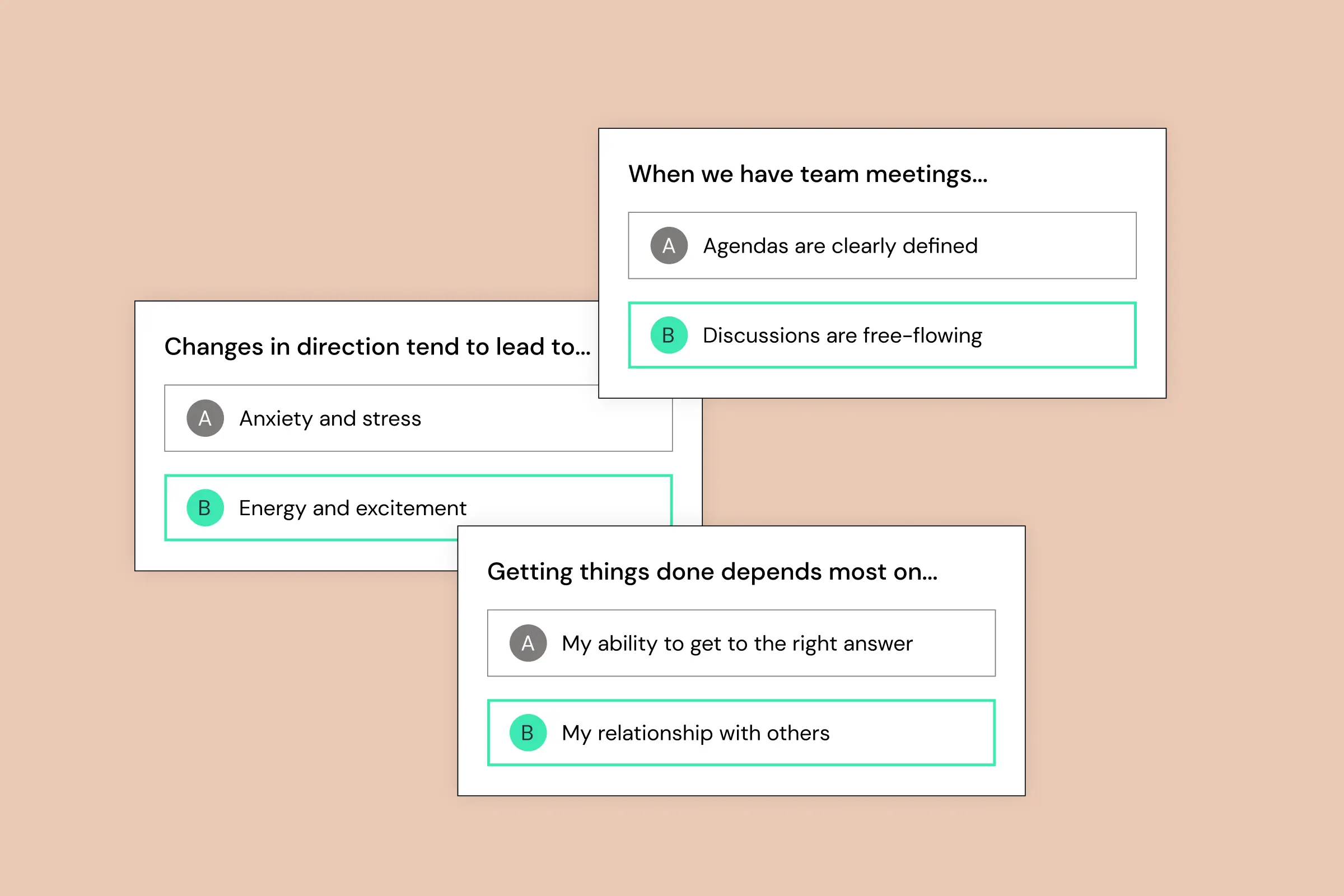

.png)
